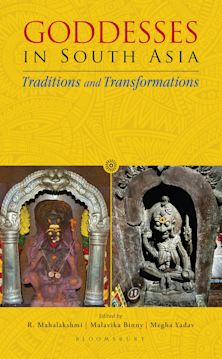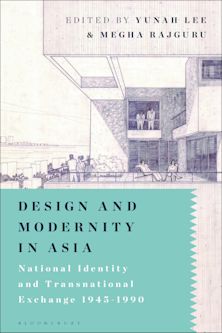- Home
- ACADEMIC
- History
- Asian History
- Jews in the Japanese Mind
Jews in the Japanese Mind
The History and Uses of a Cultural Stereotype
Jews in the Japanese Mind
The History and Uses of a Cultural Stereotype
This product is usually dispatched within 2-4 weeks
- Delivery and returns info
-
Flat rate of $10.00 for shipping anywhere in Australia
You must sign in to add this item to your wishlist. Please sign in or create an account
Description
Shortly before releasing deadly sarin gas on the Tokyo subway in March 1995, the Aum Shinrikyo religious cult published a vicious 95-page antisemitic tract that declared war on its Jewish archenemy.
The gassing of the Tokyo subway was the culmination of a century of Japanese theorizing about Jews, an important part of which has been antisemitic. In recent years, books blaming Jews for everything from the designs on Japanese currency to the 1995 Kobe earthquake have appeared, and some have sold millions of copies. What explains this virtual obsession with Jews in Japan-a country that has no Jews?
In this highly original cultural and intellectual history, David G. Goodman and Masanori Miyazawa show that present-day Japanese attitudes toward Jews are the result of a process of accretion that began nearly 200 years ago. Skillfully tracing the historical development of Japanese images of Jews against the background of the development of modern Japanese culture, they describe how these images reflect the great themes of modern Japanese intellectual life. Spanning fields ranging from politics to poetry, the authors demonstrate how Japanese attitudes toward Jews have had real political and cultural consequences, culminating in the 1995 subway gassing and resonating into the twenty-first century.
Table of Contents
Chapter 2 What the Japanese Think of Jews and Why Anyone Should Care
Chapter 3 Momotaro as Antisemite: The Cultural Roots of Japanese Images of Jews
Chapter 4 God's Chosen People: Jews in Japanese Christian Theology
Chapter 5 The Protocols of Ultranationalism: The Rise of Antisemitism Between the Wars
Chapter 6 Jews as the Enemy: The Function of Antisemitism in Wartime Japan
Chapter 7 Identification and Denial: The Uses of the Jews in the Postwar Period
Chapter 8 The Socialism of Fools: Left-Wing Anti-Zionism and Antisemitism
Chapter 9 A Signal Failure: Recrudescent Antisemitism and Japan's "Spiritual Condition"
Chapter 10 Japan's Jewish Problem: Implications in a Multicultural World
Chapter 11 Afterword: Culmination and Continuity: Developments, 1995-2000
Product details
| Published | 26 Jul 2000 |
|---|---|
| Format | Paperback |
| Edition | 1st |
| Extent | 422 |
| ISBN | 9780739101674 |
| Imprint | Lexington Books |
| Dimensions | 232 x 156 mm |
| Series | Studies of Modern Japan |
| Publisher | Bloomsbury Publishing |
About the contributors
Reviews
-
An enlightening and thorough examination of Japanese notions of the Jews. . . . Jews in the Japanese Mind is not a book about Jews. It is a book about being different, about not being Japanese, about the vast array of people with whom Japan still struggles to come to terms.
The New York Times
-
This is a riveting study of one of the most surprising phenomena in the history of the Jews. Based on extensive and scrupulous scholarship, Goodman and Miyazawa have revealed how the mythological Jew can play a central role in a culture that has no Jews. This strange obsession reveals fascinating and often frightening dimensions of modern Japan.
David Biale, Center for Jewish Studies, Graduate Theological Union
-
By studying antisemitism and its reverse, philosemitism, Goodman and Miyazawa show that Japanese ideas about Jews stem directly from Japan's modern cultural experience. This unique study is an absorbing essay on relativism and universalism in the contemporary life of the mind in Japan.
Tom Havens, University of California, Berkeley
-
A serious, thoroughly researched scholarly work that not just explains the superficial side of Japan's bizarre fascination with "Jewish" themes, but presents a balanced historical survey of Japan's encounter with Judaism from the end of the Tokugawa period to the establishment of a Jewish Cultural Center in Tokyo [in 1994].
The Instrumentalist



































